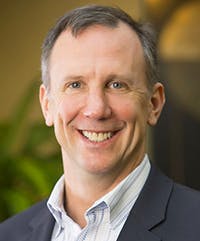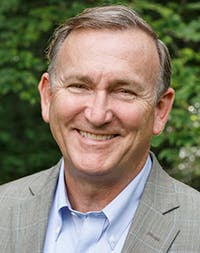Turtle & Hughes, Linden, NJ, has launched the Turtle Energy Storage Services (TESS) department to take advantage of its experience in energy storage projects and the shrinking cost of battery energy storage systems and integrated controls. Executive Vice Presidents Mark Crowdis and Kenneth McCauley will manage the new department. Both have decades of finance, project development, engineering, manufacturing, and policy experience in the energy sector.
Luis Valls, president of Turtle & Hughes Electrical Distribution Division, said in the press release, “With a large number of cities and states committed to 100% renewable energy, battery storage systems are moving our world closer to carbon-free energy use. These new technologies provide opportunities for a wide range of commercial, industrial and utility-scale applications. With Mark and Ken on our team, we see this as a natural extension of our proven expertise achieved over the last century in power distribution, industrial infrastructure and energy management solutions.”
Previously, McCauley served as president and CEO of Princeton Power Systems Inc., a designer and manufacturer of multi-port, bi-directional inverters, software-based controls and fully integrated energy storage systems. His projects included grid-tied and off-grid microgrid systems for the U.S. National Park Service and Department of Defense, as well as in Africa and on private islands for high net-worth individuals. McCauley holds a BS in chemical engineering from Bucknell University and an MBA in marketing/finance from the University of Richmond. He is an advisory board member of the New York Institute of Technology.
Turtle & Hughes provided a good backgrounder on energy storage systems in the press release:
“Energy storage has been labeled the next 'disruptive technology in the power sector.' Turtle & Hughes engineers are on the forefront of this technology and can implement complex systems that integrate with renewables to enable low-to no-carbon strategies. Customers can generate and consume their own power, manage energy flows, perform revenue generating grid services, or even disconnect from the grid when it’s beneficial to cost savings and shift power to the grid when it’s most profitable.
“In the wake of recent severe weather events, the value of energy resiliency can’t be overstated -- another capability enabled by energy storage and distributed generation. It allows customers to island a building, neighborhood, and/or town, like in the recent Turtle & Hughes microgrid project at Hudson Yards in New York City. Two co-generation plants with complex switchgear from Turtle & Hughes form a smart microgrid, which is designed to keep the city’s largest new urban village running even in the case of a power outage.
“TESS will leverage expertise from across the company, including its Power Distribution & Automation Solutions (PD&AS) department and TSI Turtle Services (TSI), which provides customers with full turnkey technology-driven solutions in environmental consulting, industrial technology, project management & consulting, and sutomation. Full-service solutions from TESS include system modeling, planning and design, technical support and just-in-time inventory solutions.
“We can help customers do everything from maximizing utility savings by shifting load or discharging when rates are highest, to structuring utility level services for frequency regulation, transmission charge mitigation, or energy arbitrage. In short, we address behind the meter, in front of the meter and across the meter applications,” said Crowdis.
“A recent McKinsey report found that ‘storage is already economical for many commercial customers to reduce their peak consumption levels.’” Making the technology economical is the decreasing cost of batteries and increasing levels of solution integration. According to the latest Long-Term Energy Storage Outlook by Bloomberg NEF, the capital cost of a utility-scale lithium-ion battery storage system is expected to decline 52% between 2018 and 2030. The report states, “The global energy storage market will grow to a cumulative 942GW/2,857GWh by 2040, attracting $620 billion in investment over the next 22 years. Cheap batteries mean that wind and solar will increasingly be able to run when the wind isn’t blowing and the sun isn’t shining.” Reduction in initial cost coupled with improved performance and long-term reliability is a compelling combination.


